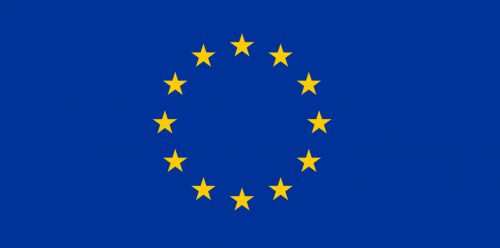The European Commission keeps targeting certain patent settlements between pharma companies as anticompetitive agreements: Cephalon and Teva formally accused of “pay-for-delay” in relation to a settlement the parties concluded in 2005

On July 17, 2017 Margrethe Vestagher, the head of antitrust at the European Commission (“Commission”), announced that its services sent a “statement of objections”[1] to the US-based originator company Cephalon Inc (Cephalon) and the Israeli generic company Teva Pharmaceutical Industry Ltd (Teva), accusing the two firms of infringing Article 101 of the TFEU (which prohibits anticompetitive agreements between independent undertakings) when they entered into a patent settlement agreement that, allegedly, had the objective of delaying the marketing in the EEA of a generic version of modafinil – a blockbuster drug for sleep disorders – despite the relevant patents had expired. The accusations refer to conduct, which occurred before Cephalon was acquired by TEVA in October 2011.Cephalon was the patent rights’ holder for the manufacturing of modafinil. Following expiration in the EEA of certain patents covering the drug’s compound, Teva initiated to sell a cheaper generic version in the UK. However, it soon stopped selling it as it was served lawsuits by Cephalon, which claimed a patent infringement on the manufacturing process in the US and UK. In 2005, the two companies reached a worldwide settlement agreement that – according to the Commission’s allegations – entailed a series of cash payments and other substantial transfer of value from Cephalon to Teva in consideration of Teva undertaking not to sell generic versions of modafinil in the EEA before October 2012. As a consequence, such conduct may have precluded the sale of competing drugs at considerably lower prices, resulting in serious harm to consumers and national healthcare systems.
Notably, the US Federal Trade Commission also investigated the two companies for antitrust violations related to their 2005 settlement agreement and filed a formal antitrust action in 2008, but then ended the dispute in 2015 after reaching a settlement with Teva (which was then controlling Cephalon). The Commission started formal antitrust proceedings on this issue in April 2011.
The statement of objections against Teva/Cephalon follows a landmark judgement of the General Court of the EU (GC) that on September 8th, 2016 upheld a 2013 Commission’s decision fining Lundbeck and several generic companies a total amount of € 146 million for entering into pay-for-delay agreements under the cover of settlements for patent-related disputes. Further, the Commission also fined Johnson & Johnson in 2013 and Servier in 2014, together with a number of generic companies, for similar pay-for-delay infringements, though appeal proceedings against these decisions are still pending.
From a substantive and legal viewpoint, the common conundrum in assessing pay-for-delay cases under competition law is whether: (i) the patent dispute which lead to the contested settlement agreement was genuinely based on the plausible expectation of the originator that the claimed patent is likely valid and enforceable; and (ii) the payment or transfer of value from the originator to the generic companies resulting from the settlement (also referred to as “reverse payment”, to underline the atypical and counterintuitive nature thereof with respect to claimed patent infringement) is objectively justified by, and proportionate to, the underlying patent dispute. However, such an assessment is very case-specific – thus uncertain and quite unpredictable – and may also fall under the scope of patent/IP laws.
According to applicable principles developed by the Court of Justice of the EU (or CGEU) in connection with enforcement of Article 101 TFEU, once the Commission has provided sufficient evidence to substantiate the allegation that the settlement agreement has a likely anticompetitive object or effect – such as to delay the market entry of a generic version of a drug beyond expiration date of the relevant patents in exchange for a share of monopoly profits deriving from artificially high prices – the burden is then shifted upon the parties of the settlement to substantiate that the overall agreement (including the “reverse payment” resulting from it) have a plausible economic rationale which is different from the objective of restricting competition between them; or that any possible anticompetitive effect is likely to be counterweighted by the efficiencies generated by the agreement (which is usually hard to prove).
But, as anticipated, the assessment of compatibility with competition law of patent settlement agreements between originators and generics may clash with fundamental principles of IP laws, which require the protection and enforceability of patent holders’ exclusivity rights. Indeed, it has been argued that if the disputed patent of the originator were to be deemed valid and enforceable by a court, the generic manufacturer could not (as a matter of law or of fact) be considered an actual or potential competitor on the same market of the patented drug since market entry would be precluded by exclusive rights; and therefore the settlement agreement could not be deemed harmful for competition (and, consequently, for healthcare systems and taxpayers) since there would be no competition between the parties absent the contested settlement (so called “counterfactual analysis” of the agreement). The GC in the cited Lundbeck case has rejected these arguments and upheld the Commission’s overall reasoning, though a further appeal against the judgment is pending and the CGEU will have to rule definitively on these important issues.
More information on the cases at hand is available at the following link: http://europa.eu/rapid/press-release_IP-17-2063_en.htm
[1] The statement of objections is the act, preceding the decision, which closes the investigative phase of the Commission’s proceedings for antitrust infringements. It identifies the preliminary findings of the investigation and stabilizes the contestations and concerns of the Commission after the information gathering process. Its purpose is to allow the parties in the proceedings to submit their defenses before a decision is taken. The decision may be issued several months (or even years in particularly complex cases) thereafter.
